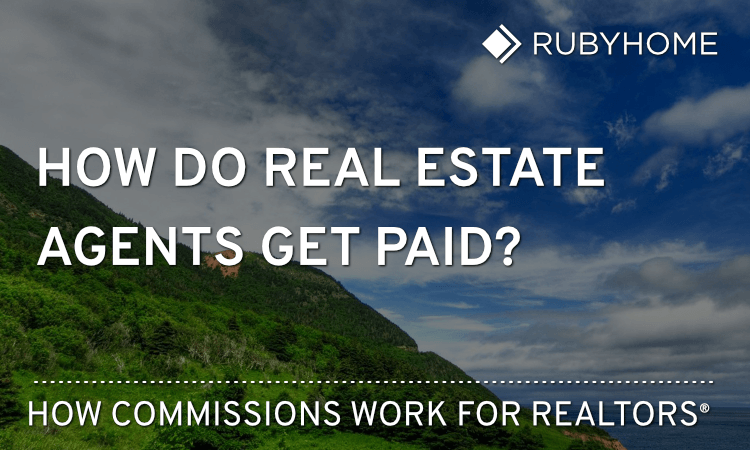
You will need to put in a lot more effort if you are aiming to earn millions as an agent. To be successful as a real estate agent, you will need to invest wisely, generate new business and maintain an attractive portfolio of properties. But if this is what you do, you will be earning over $1 million a year.
How to Make Millions with Real Estate: A Million Dollar Listing
It is important to first be able get a $1 million listing. This is a listing of homes that are worth more than one million dollars. Agents who have this type of clientele in the industry are often called rock stars.
The effort to achieve a listing worth a million dollars is time-consuming and expensive, but well worth it. Having the right marketing and a solid strategy will help you generate leads, which can then lead to sales.

You will also need to invest money in high-quality advertising tools, like Facebook ads and mailings. You could even create custom videos to showcase the home and its features.
2. Be a specialist
One of the best ways to become a million-dollar agent is to specialize in selling luxury homes. This is because these homes are two to three time more difficult to sell. They require a specialized approach. This is why it's important to have the listings that luxury clients want, and to be able to reach them through your marketing efforts.
3. Working with developers
A real estate agent can also make a million by working with new construction projects. You'll need to research the major builders in your area and get familiar with their current projects. This will help you become a prelisting specialist and earn more commissions when the construction is complete.
4. Renting out your home can be a great way to earn a good income
Renters are another way to make a fortune. You can do this in large cities or small towns with a lack of rental properties.
Renting homes may not be the most lucrative choice, but it is a great way to increase your income as an agent. This can be done by bringing in a monthly fee from each tenant, as well as a rental commission that you split with your broker.

The key to maximizing this potential is to create a good rental portfolio and manage your tenants. Also, it's a smart idea to promote and market your rentals.
5. Spending taxes to save for retirement
To be a successful million-dollar real estate agent, it's important to focus on the long-term goals of your business. You can do this by putting away 10% of the commissions you earn and 20% to your tax account. This will help you build a solid wealth fund to eventually earn you that million-dollar wage you want.
FAQ
What should you consider when investing in real estate?
It is important to ensure that you have enough money in order to invest your money in real estate. If you don’t save enough money, you will have to borrow money at a bank. Also, you need to make sure you don't get into debt. If you default on the loan, you won't be able to repay it.
It is also important to know how much money you can afford each month for an investment property. This amount must include all expenses associated with owning the property such as mortgage payments, insurance, maintenance, and taxes.
Finally, ensure the safety of your area before you buy an investment property. You would be better off if you moved to another area while looking at properties.
How can I get rid of termites & other pests?
Termites and other pests will eat away at your home over time. They can cause damage to wooden structures such as furniture and decks. To prevent this from happening, make sure to hire a professional pest control company to inspect your home regularly.
What are the 3 most important considerations when buying a property?
The three most important factors when buying any type of home are location, price, and size. Location refers the area you desire to live. Price is the price you're willing pay for the property. Size is the amount of space you require.
Which is better, to rent or buy?
Renting is usually cheaper than buying a house. It is important to realize that renting is generally cheaper than buying a home. You will still need to pay utilities, repairs, and maintenance. The benefits of buying a house are not only obvious but also numerous. You will be able to have greater control over your life.
What's the time frame to get a loan approved?
It all depends on your credit score, income level, and type of loan. It takes approximately 30 days to get a mortgage approved.
What is reverse mortgage?
A reverse mortgage is a way to borrow money from your home without having to put any equity into the property. This reverse mortgage allows you to take out funds from your home's equity and still live there. There are two types: government-insured and conventional. With a conventional reverse mortgage, you must repay the amount borrowed plus an origination fee. If you choose FHA insurance, the repayment is covered by the federal government.
Statistics
- Private mortgage insurance may be required for conventional loans when the borrower puts less than 20% down.4 FHA loans are mortgage loans issued by private lenders and backed by the federal government. (investopedia.com)
- When it came to buying a home in 2015, experts predicted that mortgage rates would surpass five percent, yet interest rates remained below four percent. (fortunebuilders.com)
- This seems to be a more popular trend as the U.S. Census Bureau reports the homeownership rate was around 65% last year. (fortunebuilders.com)
- This means that all of your housing-related expenses each month do not exceed 43% of your monthly income. (fortunebuilders.com)
- 10 years ago, homeownership was nearly 70%. (fortunebuilders.com)
External Links
How To
How to Manage a Rent Property
While renting your home can make you extra money, there are many things that you should think about before making the decision. These tips will help you manage your rental property and show you the things to consider before renting your home.
If you're considering renting out your home, here's everything you need to know to start.
-
What are the first things I should consider? You need to assess your finances before renting out your home. If you are in debt, such as mortgage or credit card payments, it may be difficult to pay another person to live in your home while on vacation. Your budget should be reviewed - you may not have enough money to cover your monthly expenses like rent, utilities, insurance, and so on. It may not be worth it.
-
How much is it to rent my home? There are many factors that influence the price you might charge for renting out your home. These factors include the location, size and condition of your home, as well as season. You should remember that prices are subject to change depending on where they live. Therefore, you won't get the same rate for every place. Rightmove has found that the average rent price for a London one-bedroom apartment is PS1,400 per mo. This would translate into a total of PS2,800 per calendar year if you rented your entire home. It's not bad but if your property is only let out part-time, it could be significantly lower.
-
Is it worth it. Doing something new always comes with risks, but if it brings in extra income, why wouldn't you try it? Make sure that you fully understand the terms of any contract before you sign it. It's not enough to be able to spend more time with your loved ones. You'll need to manage maintenance costs, repair and clean up the house. You should make sure that you have thoroughly considered all aspects before you sign on!
-
Is there any benefit? It's clear that renting out your home is expensive. But, you want to look at the potential benefits. Renting your home is a great way to get out of the grind and enjoy some peace from your day. It's more fun than working every day, regardless of what you choose. You could make renting a part-time job if you plan ahead.
-
How do you find tenants? Once you've made the decision that you want your property to be rented out, you must advertise it correctly. Make sure to list your property online via websites such as Rightmove. Once you receive contact from potential tenants, it's time to set up an interview. This will help to assess their suitability for your home and confirm that they are financially stable.
-
How can I make sure that I'm protected? You should make sure your home is fully insured against theft, fire, and damage. You will need insurance for your home. This can be done through your landlord directly or with an agent. Your landlord will likely require you to add them on as additional insured. This is to ensure that your property is covered for any damages you cause. This doesn't apply to if you live abroad or if the landlord isn’t registered with UK insurances. In these cases, you'll need an international insurer to register.
-
You might feel like you can't afford to spend all day looking for tenants, especially if you work outside the home. Your property should be advertised with professionalism. You should create a professional-looking website and post ads online, including in local newspapers and magazines. It is also necessary to create a complete application form and give references. Some people prefer to do the job themselves. Others prefer to hire agents that can help. In either case, be prepared to answer any questions that may arise during interviews.
-
What happens once I find my tenant If there is a lease, you will need to inform the tenant about any changes such as moving dates. If this is not possible, you may negotiate the length of your stay, deposit, as well as other details. You should remember that although you may be paid after the tenancy ends, you still need money for utilities.
-
How do I collect my rent? When the time comes to collect the rent, you'll need to check whether your tenant has paid up. You will need to remind your tenant of their obligations if they don't pay. Before you send them a final invoice, you can deduct any outstanding rent payments. If you're struggling to get hold of your tenant, you can always call the police. They will not usually evict someone unless they have a breached the contract. But, they can issue a warrant if necessary.
-
How do I avoid problems? It can be very lucrative to rent out your home, but it is important to protect yourself. Ensure you install smoke alarms and carbon monoxide detectors and consider installing security cameras. You should also check that your neighbors' permissions allow you to leave your property unlocked at night and that you have adequate insurance. You should never allow strangers into your home, no matter how they claim to be moving in.